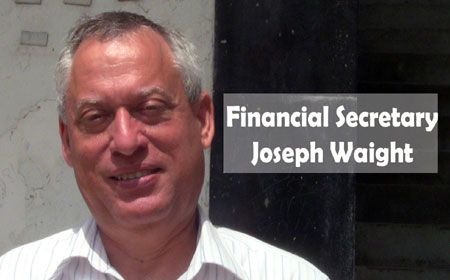BELIZE CITY, Wed. July 13, 2016–The Government of Belize is raising funds on the domestic market to finance the payment of the arbitration award amounting to nearly half-a-billion dollars to the Ashcroft group of companies, whose shares the Government of Belize assumed when it nationalized Belize Telemedia Limited (BTL) back in 2009. As we reported last week, the balance, after subtracting the $65 million paid as an initial installment last September, is roughly $395 million, and half of that is due by today, July 13, 2016.
The Government of Belize is making use of the increased liquidity in Belize’s financial system—but this would also translate to a marked increase in the public debt stock, from about 82% last year to about 92% by the time the payments are settled.
We asked Ervin Perez, Managing Director, Legacy Fund, for the current liquidity data. Citing the Central Bank’s Weekly Monetary Aggregates, Perez told us that as of June 15, 2016, the amount of excess liquidity (in terms of hard cash) in the system is $451,802,000, up about $81 million from the same time last year.
How will the offering of treasury bills and notes work? Financial Secretary Joseph Waight told Amandala that the Central Bank, the Government’s fiscal agent, will purchase the Government’s notes and bills in the first instance and then on-sell them to institutional investors via a bid process. Those could include the commercial banks and insurance companies.
The offering of treasury notes and bills, said Waight, is close to $200 million—$185 million in T-notes and a smaller portion in T-bills.
The difference is, the treasury notes have a fixed, longer term and they vary in maturity from 1 to 10 years. The interest rates also vary: 3% for the 1-year notes, 4% for the 5-year notes, 4.5% for the 7-year notes and 5.25% for the 10-year notes.
Waight said that these rates are reflective of the current interest rates on the market. The interest would be paid to note holders semi-annually, every 180 days.
The bills, on the other hand, mature in 90 days. They are sold to purchasers at a discount on the face value. For example, a bill for $100 could be sold at $98, for a gain of about 2%. These, Waight said, are mostly held by banks and it’s a way to manage their liquidity.
Amandala understands that the Belize Social Security Board, which had initially been asked by the Government to purchase $55 million worth of shares in BTL and Belize Electricity Limited (BEL), is considering purchasing some of those financial instruments from the Government. The share offering is being reconsidered, at least for the time being, according to Waight.
He told us that the Government has been getting a combined revenue stream of about $10 million a year, about $7 mil of it from BTL.
“The Government has taken the position not to proceed with any proposed sale of shares, but rather to retain its shares for itself and to therefore maintain the ownership of those shares and then be beneficiary of dividends or income, rather than sell the future stream of income,” Waight said.
Those receipts, Waight said, would help to meet commitments to holders of the treasury bills and notes.
Waight explained that Dunkeld International Investments Limited (which held 34 million shares in BTL at nationalization) is to receive two-thirds of the funds, while the remainder is to go to the BTL Employees Trust, another Ashcroft-controlled entity which held roughly 11 million shares at nationalization.
Dunkeld is the investment arm of Hayward Charitable Trust—the entity to which the Government would propose projects for Belize in line with the settlement agreement provision, which stipulates that the portion of the compensation attributed to the accommodation agreement (roughly 60%) would be payable in Belize dollars and spent on projects in Belize.
“Their consent would not be unreasonably withheld,” Waight said.
On a final note, after the Government pays the second portion of the arbitration award in 12 months, Belize’s debt to GDP ratio will be pushed to a high of 91-92%, according to figures provided by the Financial Secretary. This week’s payment, which will be met from domestic borrowing via the offering of treasury notes and bills, will increase the debt burden to about 86%.
This year’s report of the International Monetary Fund on Belize said that Belize’s public debt stock had “climbed to 82 percent of GDP after a one-off payment related to a settlement of a loan to one of the nationalized companies [speaking of the loan from the British Caribbean Bank to BTL which the Government had also acquired at nationalization], an increase in public sector wages and transfers and a large overrun in capital expenditure.”

